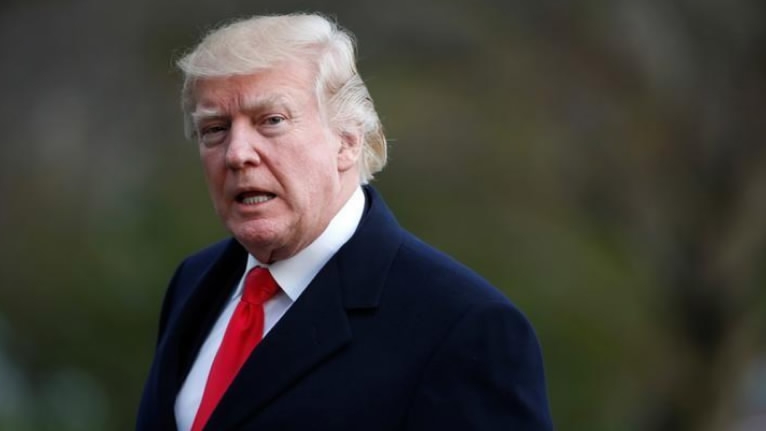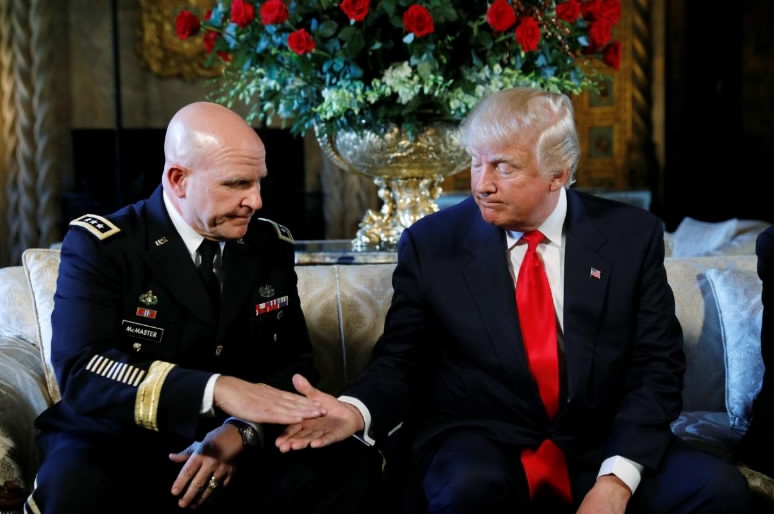
Politics
18:03, 18-Dec-2017
Trump to roll out national security strategy
By Jessica Stone

US President Donald Trump could well be the first American leader to roll out his national security strategy within his first year in office.
“As far as we have been able to determine, no administration has ever finished it in the first year,” said a senior administration official in a briefing to reporters ahead of Monday’s speech.
According to the officials who participated in the briefing on the condition of anonymity, the congressionally-mandated strategy document will “accurately reflect” Trump’s priorities for national security as well as serve as a framework for all the actions he took in 2017 and will continue to take throughout the balance of his presidency.
According to the officials, the strategy identifies four vital national interests:
1. Protection of the homeland.
2. Promoting American prosperity.
3. Preserving peace through strength.
4. Advancing American influence.

Homeland Security officials speak with police officers outside the New York Port Authority Bus Terminal in New York City, US December 11, 2017 after reports of an explosion. /VCG Photo
Homeland Security officials speak with police officers outside the New York Port Authority Bus Terminal in New York City, US December 11, 2017 after reports of an explosion. /VCG Photo
It also characterizes three types of adversaries to American interests:
1. Revisionist powers: China, Russia are singled out.
2. Rogue regimes (think Democratic People’s Republic of Korea).
3. Transnational threat organizations, such as ISIL.
Officials say the national security strategy also differs from the past in that it takes “an unprecedented focus” on homeland security. It “was never mentioned in nearly as much detail” before, said one official. And protecting the US economy “gets much more attention.”
In addition, climate change is not identified as a national security threat, according to officials.
China focus
Trump is expected to single out China, labeling it an “economic aggressor” as his National Security Advisor H.R. McMaster previewed publicly last week.
“China is seen as a strategic competitor because China competes effectively across the political, economic, military, and informational domains in ways probably not duplicated by our other competitors,” said one senior administration official who pointed to Beijing’s island-building in the South China Sea as an effort “to change the status quo.” China claims sovereignty over the Xisha and Nansha islands, but neighboring countries have competing territorial claims to the islands.

US President Donald Trump shakes hands with his new National Security Adviser Army Lt. Gen. H.R. McMaster after making the announcement at his Mar-a-Lago estate in Palm Beach, Florida US February 20, 2017. /Reuters Photo
US President Donald Trump shakes hands with his new National Security Adviser Army Lt. Gen. H.R. McMaster after making the announcement at his Mar-a-Lago estate in Palm Beach, Florida US February 20, 2017. /Reuters Photo
The White House also plans to roll out specific ideas on how to protect American research and development at national laboratories and universities as well as suggest legislation. That’s likely to include changes to the focus of the Committee on Foreign Investment in the United States (CFIUS), the body which oversees foreign direct investment deals which can have US national security implications. In recent months, an attorney who represents clients before the CFIUS told CGTN that cases against China appear to be on the rise.
The Trump administration believes the country’s “innovation base is under threat by serious Chinese intellectual property theft” and wants to reassess the relationship so “we can protect American advantages.”
There was no comment from the Chinese Foreign Ministry Sunday night, but an editorial by the Chinese newspaper, The Global Times, posted on Sunday accused the US of being “the biggest saboteur of international rules and challenger of free trade” saying “it’s hegemonic for the US to accuse any country of economic aggression since no country is able to do so."
11159km

SITEMAP
Copyright © 2018 CGTN. Beijing ICP prepared NO.16065310-3
Copyright © 2018 CGTN. Beijing ICP prepared NO.16065310-3